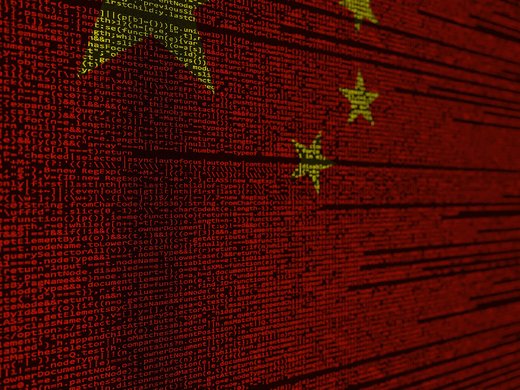I recently discussed on this blog the high tensions between China and Japan and their discreet attempt to work toward détente. While much attention has been paid to the political implications of the current strife, an aspect that is often overlooked is the consequences the dispute has had on public opinion in the two countries. A better understanding of the nature of Japanese and Chinese perceptions is the first step toward assuaging mutual fears.
Ill feelings between the Chinese and Japanese are currently at an all-time high. The Genron NPO, a Japanese think tank, and the China Daily newspaper have been conducting public opinion studies on Japan-China relations since 2005. In 2013, their annual poll found that more than 90 percent of Chinese and Japanese citizens held a negative opinion of each other. Their latest poll results, released in September, are as alarming. While the number of Chinese people who hold an unfavourable opinion of Japan has slightly decreased to 86.8 percent from 92.8 percent, the number of Japanese who view China negatively has increased to 93 percent from 90.1 percent. Moreover, 53.4 percent of Chinese and 29 percent of Japanese now believe that a military conflict between the two countries is likely to occur in the future, showing an increase since 2013.
How did they get to this point? A rising tide of nationalism in both countries explains in large part the drop in mutual regard. Nationalism is widely perceived to be on the rise in China, fueled by the country’s fast rise and a new leader that appears more willing than his predecessors to assert China’s power in the region, as demonstrated by ongoing disputes in the East and South China Seas. In order to increase popular support, the Communist Party of China (CPC) has been keen to use the history card, playing up the narrative of China as a victim of great powers during the so-called century of humiliation. This narrative fits in nicely with the CPC’s declared aim to realize the “Chinese dream,” achieve “national rejuvenation,” and reclaim what it sees as its rightful place in the world as a great power. However, as China’stwentieth century history is intricately linked to Japanese aggression, Chinese leaders cannot go down this road without painting Japan in a negative light. The Chinese official media now commonly publish articles on the latest historical evidence of Japanese crimes or government-sponsored events commemorating war-time episodes involving Japan. The Chinese media does not limit itself to historical events. It is rife with opinion pieces warning of what it perceives as a return to militarism in Japan, a fear that is both groundless and dangerous.
Nationalism has also made a prominent return to the fore in Japan. While the causes of this upswing in nationalist sentiment are complex, Japan’s long-lasting economic stagnation, insecurity and perceived slip from international relevance have given more room for disaffected citizens to air grievances and frustrations. In this context, the message from nationalist politicians like Prime Minister Shinzo Abe resonates deeply with many Japanese. Before being re-elected in 2012 after a brief and unsuccessful stint in 2006 and 2007, Abe had advocated an unapologetic stance toward history and promised a stronger Japan as well as a reinvigorated economy. The election of a conservative government combined with a worsening geopolitical environment injected life into right-wing and nationalist groups that were hitherto little known. One notable example is Nippon Kaigi, a conservative organization that champions a stronger military and patriotic education, issues that have long been a source of friction with China and South Korea. Most members of the latest Abe cabinet, reshuffled in early September, are members of Nippon Kaigi. But they do not advocate what China fears.
Nationalism in official discourse and in the media has important consequences on public perceptions, which can in turn influence policy makers. It leads to increased wariness and misperceptions, as the results of the Genron/China Daily poll clearly reflect. To be sure, negative public opinion of Japan and China will not automatically result in similarly antagonistic policies. While nationalism is a potent political force in China, some have argued that its effects on Beijing’s policies are overstated. However, as the Communist Party is loath to appear weak in the face of Japan and compromise its legitimacy as the defender of Chinese national interests, its options are relatively limited. For its part, Abe needs the support of conservative groups to implement its vision of a stronger military, and is thus unlikely to deviate too much from his current path. Further, as scholar Zheng Wang pointed out, when planning policy, both governments can hardly disregard the fact that 90 percent of their citizens dislike each other.
While Chinese and Japanese leaders are attempting to orchestrate a rapprochement, what can be done to turn public perceptions around? Considering the prevalence of nationalist discourse in the media and the impact of news organizations on public opinion, a first step would be to encourage media to tone down rhetoric. Although this is easier said than done, there are possible pathways. A recent Stanford University project convened Chinese, Japanese, Korean and Western scholars to discuss “Pathways to Reconciliation” in East Asia. One of the key recommendations was to set up educational forums where history scholars would present their views to editors and reporters from print, broadcast and online media. This could contribute to a better understanding of historical issues and highlight the need for fairer treatment of events relating to China-Japan ties. However, this would only be possible with some level of government support, especially in China where mainstream media is controlled by the CPC Propaganda Department. Another beneficial measure would be to increase funding for large-scale exchanges students in both countries, not only at the university level but also for the middle and high school students. Setting up schools and educational programs jointly run by Chinese and Japanese institutions, which still constitute a rarity, would also hold promise.
A meeting between the Chinese and Japanese leaders, which could occur in November during the APEC summit in Beijing, would help ease tensions. But until citizens in each country espouse more positive views of each other, a meaningful and durable rapprochement remains a dim prospect.


